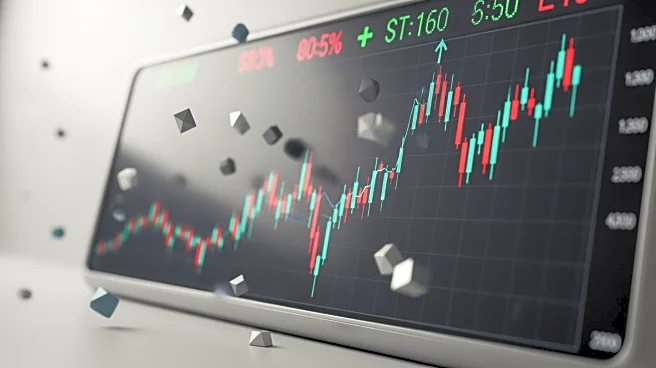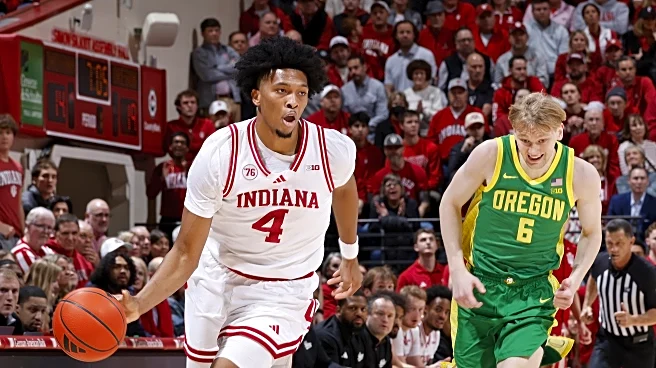What's Happening?
Retail traders have significantly influenced the stock market, leading to the largest options volume day ever recorded. On October 10, over 108 million contracts were traded, marking only the second time
this volume has exceeded 100 million. This surge was driven by retail traders with a strong bullish bias, as noted by Scott Rubner, head of equity and equity derivatives strategy at Citadel Securities. The retail flow showed an 11% better-to-buy skew, surpassing the 4% average of the past three months. This marks the 24th consecutive week of a bullish options skew, tying the longest streak on record for Citadel Securities. Retail traders have maintained a buy-the-dip mentality, propelling the S&P 500 to new highs despite negative headlines concerning trade, geopolitical conflicts, and economic weaknesses. Institutional investors have been de-risking, while retail traders continue to buy, challenging the traditional notion of hedge funds as the 'smart money.'
Why It's Important?
The influence of retail traders on the stock market is reshaping traditional investment dynamics. Their persistent buy-the-dip strategy has kept the market buoyant, even as institutional investors remain cautious. This shift suggests a democratization of market influence, where retail investors play a pivotal role in driving equity prices. The S&P 500's rise, nearly 2% this week, underscores the impact of retail trading activity. This trend has implications for financial institutions, as seen in Charles Schwab's stronger-than-expected earnings, attributed to increased retail trading. The ongoing bullish sentiment among retail traders could sustain market growth, but it also introduces volatility, as their strategies differ from institutional approaches.
What's Next?
Looking ahead, the market may experience continued volatility as retail traders maintain their influence. Citadel Securities' Scott Rubner remains optimistic about the equity market trend, citing potential seasonal strength in November. However, he advises caution in the coming weeks. Financial institutions and market analysts will likely monitor retail trading patterns closely, assessing their impact on market stability and investment strategies. The evolving role of retail traders may prompt changes in how institutional investors approach market participation, potentially leading to new strategies to engage with this influential group.
Beyond the Headlines
The rise of retail traders highlights broader shifts in market participation and investment culture. This trend reflects increased access to trading platforms and financial information, empowering individual investors. It also raises questions about market stability and the potential for increased volatility, as retail traders may react differently to market signals compared to institutional investors. The democratization of market influence could lead to regulatory considerations, as authorities assess the implications of this shift for market integrity and investor protection.










